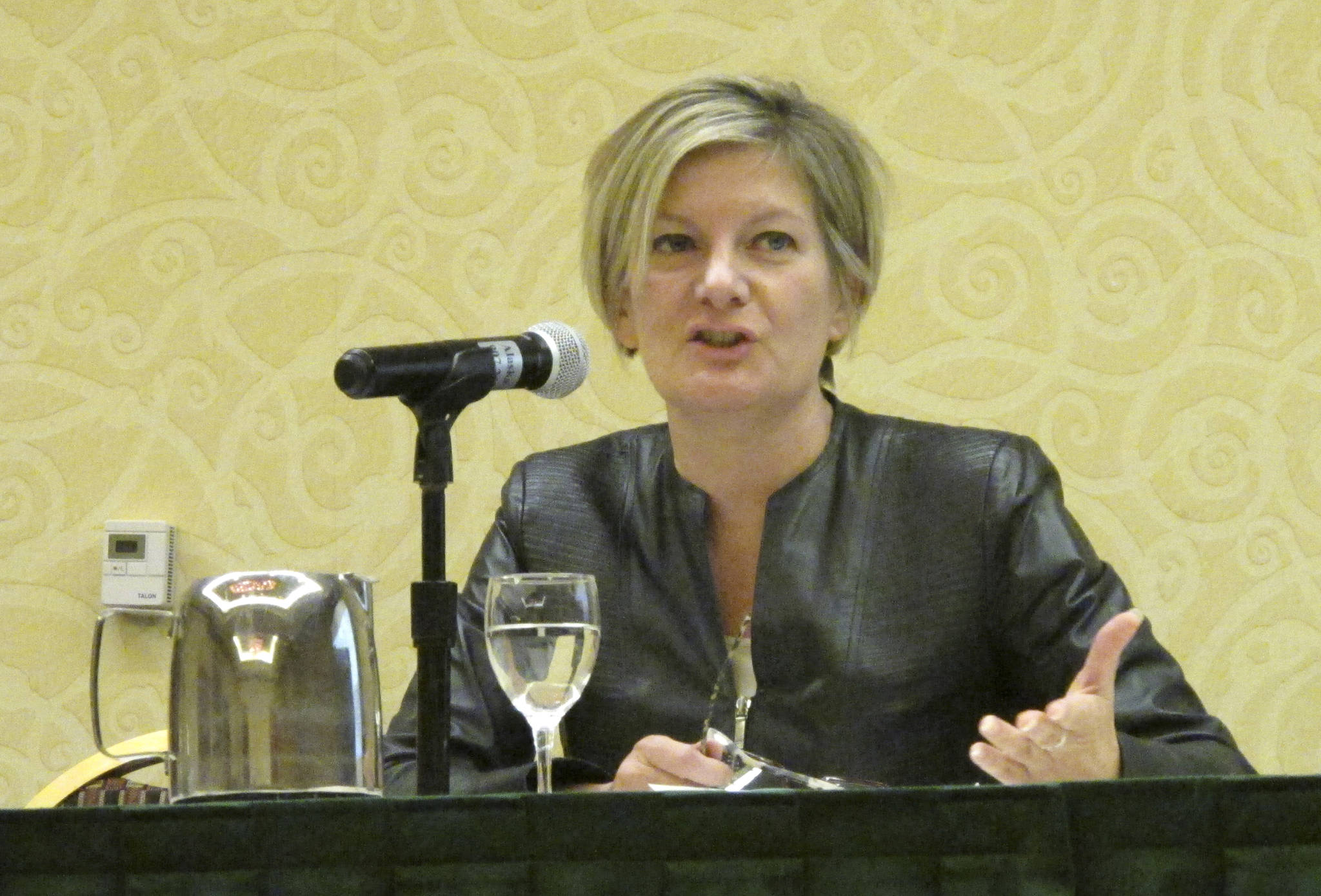ANCHORAGE — Alaska’s top lawyer said Tuesday the traditional form of tribal justice known as banishment does not generally involve the state, but her office will step in if asked to do so or to address a state interest.
State Attorney General Jahna Lindemuth outlined the state’s position on tribal banishment Tuesday as the keynote speaker at the annual Alaska Native Law Conference.
Lindemuth said banishment cases generally are private civil actions that the state has no authority over. But she said that if asked, the state will investigate cases involving possible crimes or constitutional issues. Sometimes the state is asked to help enforce banishment orders, and sometimes the person being banished will complain that a tribe overstepped its authority.
Every case has to be evaluated on its own, and sometimes tribal law enforcement officers may not present sufficient evidence for the state to pursue a criminal case, said Assistant Attorney General Cori Mills, the spokeswoman for the state Department of Law.
Protective orders, including those issued by a tribal court, must be enforced by law enforcement officers, according to a memo issued by the state Department of Law in late July.
Tribes are sovereign governments with specific powers, and the state deals with them just as it would other governments, Lindemuth said. In most instances, the state is not directly notified by any of the parties involved, but it may find out about cases through news reports.
Expelling people from Alaska Native villages occasionally occurs in rural villages. Two recent cases involved non-Natives who were accused of illegal alcohol importations or bootlegging. No criminal charges were filed in either of those cases.
“Banishment is a very extreme remedy even under tribal law — and it’s very much, I think, the community feeling that there’s no law enforcement in their community,” Lindemuth said. She noted many villages have no law enforcement presence, and people may feel banishment is the only option in some cases.
Lindemuth said her office also works behind the scenes with law enforcement and tribal partners. But she added there’s room for improvement, including the need to address underlying public safety issues, such as illegal importations of drugs and alcohol, while empowering communities at the same time.
For example, she noted the state’s new civil diversion agreement program, which allows tribes to have jurisdiction over low-level crimes, such as certain assaults, reckless endangerment and substance abuse offenses. So far, tribes in the villages of Anvik and Nulato have signed on, Lindemuth said.
She hopes to see more tribal entities participate in that program.


